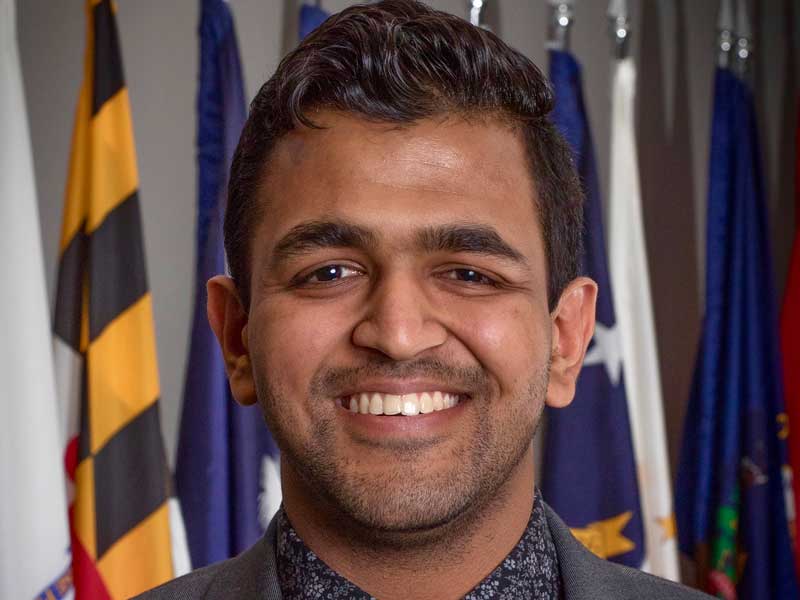Rutgers alumnus named 2020-21 Congressional Healthcare Policy Fellow
April 20, 2020

Through this fellowship, pharmacists have the opportunity to gain real-world insight into health care policy analysis and development through immersion in the congressional environment. Fellows are mentored in legislative evaluation, policy development, research and writing while integrating practical experience with theory.
Jindal decided to attend pharmacy school because his dad was an independent pharmacy owner, so he grew up working in the pharmacy as a cashier and interacting with an underserved patient population.
“I would see a lot of patients decline certain medications simply because they couldn’t afford them, even with insurance,” he said. “I saw community practice as a way of making a difference on the ground, in the communities, and serving the patients I felt compelled to help when I was a cashier in that environment.”
He’s currently completing a PGY1 Community-Based Pharmacy Residency at Moose Pharmacy in Concord, North Carolina, through the UNC Eshelman School of Pharmacy’s program. He earned his Pharm.D. from the Ernest Mario School of Pharmacy at Rutgers.
“In pharmacy school, I heard a lot about payment models and delivery models,” he said. “I was interested in getting engaged in policy, but I knew that before I could do that, I needed to understand how those models work, so that’s why I pursued a community pharmacy residency.”
For the last two years, Jindal has been serving as the Piscataway Township Ward 4 Elected Committeeman, where he has engaged with elected members of the local and state government to develop policy solutions to infrastructure and educational funding concerns. This and other opportunities he’s had to learn about and influence policy changes fueled his decision to pursue this fellowship.
“I’m really excited about this program because I feel like I have a good idea of how patients access care in our communities,” he said. “There’s really no other program in the country that allows you to develop such a strong foundation to go out and make meaningful changes in the health care policy environment.”
After completing the fellowship, Jindal hopes to continue to be engaged in health policy development, whether at a state or federal level.
“I think keeping pharmacists and other health care providers involved in the policy conversation is how we really push the envelope forward,” he said.